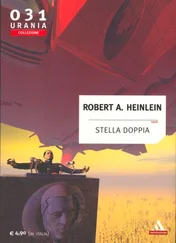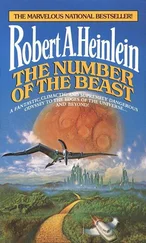Robert Heinlein - Expanded Universe
Здесь есть возможность читать онлайн «Robert Heinlein - Expanded Universe» весь текст электронной книги совершенно бесплатно (целиком полную версию без сокращений). В некоторых случаях можно слушать аудио, скачать через торрент в формате fb2 и присутствует краткое содержание. Жанр: Фантастика и фэнтези, на английском языке. Описание произведения, (предисловие) а так же отзывы посетителей доступны на портале библиотеки ЛибКат.
- Название:Expanded Universe
- Автор:
- Жанр:
- Год:неизвестен
- ISBN:нет данных
- Рейтинг книги:4 / 5. Голосов: 1
-
Избранное:Добавить в избранное
- Отзывы:
-
Ваша оценка:
- 80
- 1
- 2
- 3
- 4
- 5
Expanded Universe: краткое содержание, описание и аннотация
Предлагаем к чтению аннотацию, описание, краткое содержание или предисловие (зависит от того, что написал сам автор книги «Expanded Universe»). Если вы не нашли необходимую информацию о книге — напишите в комментариях, мы постараемся отыскать её.
Expanded Universe — читать онлайн бесплатно полную книгу (весь текст) целиком
Ниже представлен текст книги, разбитый по страницам. Система сохранения места последней прочитанной страницы, позволяет с удобством читать онлайн бесплатно книгу «Expanded Universe», без необходимости каждый раз заново искать на чём Вы остановились. Поставьте закладку, и сможете в любой момент перейти на страницу, на которой закончили чтение.
Интервал:
Закладка:
But are there reliable criteria by which science fiction can be judged by one who is not well acquainted with the field? In my opinion, there are. Simply the criteria which apply to all fields of fiction, no more, no less.
First of all, an item of science fiction should be a story, i.e., its entertainment value should be as high as that which you expect from other types of stories. It should be entertaining to almost anyone, whether he habitually reads the stuff or not. Second, the degree of literacy should be as high as that expected in other fields. I will not labor this point, since we are simply applying an old rule to a new field, but there is no more excuse here than elsewhere for split infinitives, dangling participles, and similar untidiness, or for obscurity and doubletalk.
The same may be said for plotting, characterization, motivation, and the rest. If a science - fiction writer can't write, let him go back to being a fry cook or whatever he was doing before he gave up honest work.
I want to make separate mention of the author's evaluations. Granted that not all stories need be morally edifying, nevertheless I would demand of science fiction writers as much exercise of moral sense as I would of other writers. I have in mind one immensely popular series which does not hold my own interest very well because the protagonist seems to be guided only by expediency. Neither the writer nor his puppet seems to be aware of good and evil. For my taste this is a defect in any story, nor is the defect mitigated by the wonderful and gaudy trappings of science fiction. In my opinion, such abstractions as honor, loyalty, fortitude, self - sacrifice, bravery, honesty, and integrity will be as important in the far reaches of the Galaxy as they are in Iowa or Korea. I believe that you are entitled to apply your own evaluating standards to science fiction quite as rigorously as you apply them in other fiction.
The criteria outlined above take care of every aspect of science fiction but one - the science part. But even here no new criterion is needed. Suppose you were called on to purchase or to refuse to purchase a novel about a Mexican boy growing up on a Mexican cattle ranch; suppose that you knew no Spanish, had never been to Mexico and were unacquainted with its history and customs, and were unsure of the competence of the author. What would you do?
I suspect that you would farm out the decision to someone who was competent to judge the authenticity of the work. It might be a high school Spanish teacher, it might be a friend or neighbor who was well acquainted with our neighboring culture, it might be the local Mexican consul. If the expert told you that the background material of the book was nonsense, you would not give the book shelf room.
The same procedure applies to science fiction. No one can be expected to be expert in everything. If you do not happen to know what makes a rocket go when there is no air to push against, you need not necessarily read Willy Ley's Rockets, Missiles, and Space Travel - although it is a fine book, a "must" for every library, desirable for any home. You may instead consult anyone of your acquaintance who does know about rocket ships - say an Air Force or Artillery officer, a physics teacher, or almost any fourteen - year - old boy, especially boys who are active in high school science clubs. If the novel being judged concerns cybernetics, nuclear physics, genetics, chemistry, relativity, it is necessary only to enlist the appropriate helper.
You would do the same, would you not, with a novel based on the life of Simon Bolivar?
Of course, there is the alternate, equivalent method of testing the authenticity of any book by checking on the author. If the Simon Bolivar novel was written by a distinguished scholar of South American history, you need concern yourself only with the literary merit of the book. If a book about space travel is written by a world - famous astronomer (as in the case of the one who writes under the pen name of "Philip Latham"), you can put your mind at rest about the correctness of the science therein. In many cases science - fiction writers have more than adequate professional background in the sciences they use as background material and their publishers are careful to let you know this through catalog and dust jacket blurb. I happen to be personally aware of and can vouch for the scientific training of Sprague de Camp, George 0. Smith, "John Tame," John W. Campbell, Jr., "Philip Latham," Will Jenkins, Jack Williamson, Isaac Asimov, Arthur C. Clarke, E. E. Smith, Philip Wylie, Olaf Stapledon, H. G. Wells, Damon Knight, Harry Stine, and "J. J. Coupling." This listing refers to qualifications in science only and is necessarily incomplete, nor do I mean to slight the many fine writers without formal scientific training who are well read in science and most careful in their research.
But some means of checking on a writer of alleged science fiction is desirable. Most writers of historical fiction appear to go to quite a lot of trouble to get the facts of their historical scenes correct, but some people seem to feel that all that is necessary to write science fiction is an unashamed imagination and a sprinkling of words like "ray gun," "rocket tube," "mutant," and "space warp." In some cases the offense is as blatant as it would be in the case of an author of alleged historical fiction who founded a book on the premise that Simon Bolivar was a Chinese monk! It follows that, in order to spot these literary fakers it is necessary to know that Bolivar was not a Chinese monk - know something of the sciences yourself or enlist competent advisers.
AFTERWORD
Writers talking about writing are about as bad as parents boasting about their children. I have not done much of it; the few times that I have been guilty, I did not instigate the project, and in almost all cases (all, I think) my arm was twisted.
I promise to avoid it in the future.
The item above, however, I consider worthy of publication (even though my arm was twisted) because there really are many librarians who earnestly wish to buy good science fiction... but don't know how to do it. In this short article I tried very hard to define clearly and simply how to avoid the perils of Sturgeon's Law in buying science fiction.
Part way through you will notice the origin of the last name of the STRANGER IN A STRANGE LAND.
"It is far, far better to have a bastard in the family than an unemployed son - in - law."
- Jubal Harshaw
FOREWORD
Superficially this looks like the same sort of article as PANDORA'S BOX; it is not, it is fiction - written by request to celebrate the 50th anniversary of Amazing Stories. In PANDORA'S BOX I was trying hard to extrapolate rationally to most probable answers 50 years in the future (and in November1979 I gave myself a score of66% - anybody want to buy a used crystal ball with a crack in it?).
But in this short - short I wrote as if I were alive in 2001 and writing a retrospective of the 20th century. Of course everyone knows what happened in 2001; they found a big black monolith on Luna - but in 19561 didn't know that. So I wrote as far out as I thought I could get away with (to be entertaining) while trying to make the items sound plausible and possible if not likely.
Figures in parentheses refer to notes at the end.
"Has it ever occurred to you
that God might be a committee?"
- Jubal Harshaw
THE THIRD MILLENNIUM OPENS
Now, at the beginning of the year 2001, it is time to see where we have been and guess at where we are going. A thousand years ago Otto III ruled the Holy Roman Empire, William the Conqueror was not yet born, and the Discovery of America was almost five hundred years in the future. The condition of mankind had not changed in most important respects since the dawn of history. Aside from language and local custom a peasant of 1000 B.C. would have been right at home in a village of 1001 A.D.
Читать дальшеИнтервал:
Закладка:
Похожие книги на «Expanded Universe»
Представляем Вашему вниманию похожие книги на «Expanded Universe» списком для выбора. Мы отобрали схожую по названию и смыслу литературу в надежде предоставить читателям больше вариантов отыскать новые, интересные, ещё непрочитанные произведения.
Обсуждение, отзывы о книге «Expanded Universe» и просто собственные мнения читателей. Оставьте ваши комментарии, напишите, что Вы думаете о произведении, его смысле или главных героях. Укажите что конкретно понравилось, а что нет, и почему Вы так считаете.











